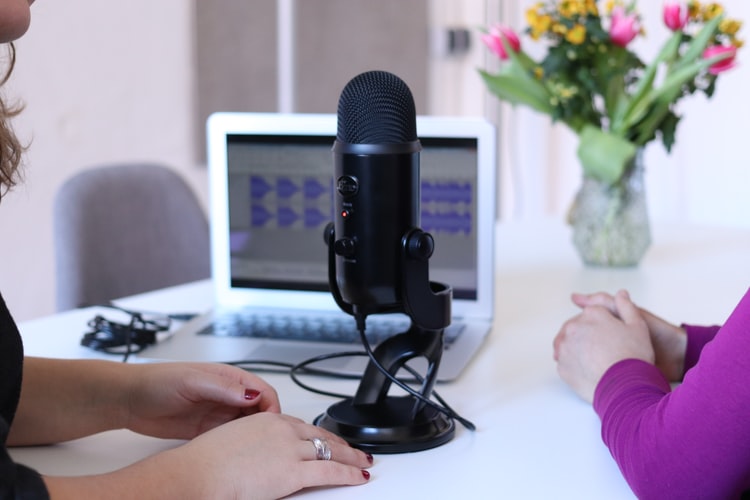|
#GETLINK'D Virtual Conference
August 17-19, 2021
Conference Agenda
| |
|
10 a.m. - 12 p.m.
Pre-Conference 1 - Keep Calm and Compliance On - Compliance Basics and Beyond
| |
|
1 p.m. - 4 p.m.
Pre-Conference 3 - Missouri Rural Community Opioid Response Program (RCORP) Grantee Meeting
| |
|
(RCORP) 1 p.m. - 2 p.m. Learn about the relationship between medical provider continuing education, potential barriers, and attitudes in providing medication for opioid use disorder - Shawn Hayden
2 p.m. - 3 p.m. – Mobile Unit - Felisha Richards
3 p.m. – 4 p.m. – Harm Reduction- Neann Wedgeworth
5 p.m. CONFERENCE ADJOURNS FOR DAY
| |
|
9 a.m. - 10 a.m.
Session Gun Violence Prevention-
1 of 2 Part Session
| |
|
Jessi LaRose MPH, Senior Strategist-Initiatives, Missouri Foundation for Health and Katie Ellison MA, Project Director for the Safer Homes Collaborative, Missouri Institute for Mental Health
Gun Violence in Missouri is recognized as a public health issue that affects people of all demographics, in both rural and urban communities, across our state. Gun violence is not exclusively an urban public health issue. Gun violence is both an urban and rural public health crisis, which includes homicides, accidental shootings, and suicide. Missouri Foundation for Health is fostering gun violence prevention strategies that focus on strengthening interdisciplinary networks that are working to address the impact of all forms of gun violence on Missouri communities. One of the strategies the Foundation has leveraged is the Safer Homes Collaborative at the Missouri Institute for Mental Health. The Safer Homes Collaborative has found common ground between suicide prevention and gun-owning communities, in an effort to reduce gun suicides through non-political, evidence-based, lethal means reduction strategies.
| |
|
10 a.m. - 11 a.m.
CALM- Conversations on Access to Lethal Means-
2 of 2 Part Session
| |
|
Katie Ellison, MA, Project Director for the Safer Homes Collaborative, Missouri Institute for Mental Health
Missourians are more likely to intentionally kill themselves with a gun than they are to be killed by a gun in a mass shooting or homicide. Six out of ten suicide deaths in Missouri are by firearm. Conversations on Access to Lethal Means is a 1-hour adaptation of Counseling on Access to Lethal Means, which promotes the evidence-based strategy of reducing access to lethal means to prevent suicide. CALM is the next step in suicide prevention that everyone can learn to do to prevent suicide. Upon completion of the CALM workshop, participants will be able to identify risk factors and warning for suicide, understand the concept of lethal means reduction and why it works, as well as tips for how to have the conversation about reducing access to lethal methods used in suicide by encouraging safer storage of lethal means.
| |
|
9 a.m. -11 a.m.
What's Next? Information Blocking Compliance
| |
 | |
Brooke Bennett Aziere and Amanda Wilwert, Foulston Siefkin LLP
On May 1, 2020, the Office of the National Coordinator (ONC) and Centers for Medicare & Medicaid Services (CMS) simultaneously published their final rules implementing the 21st Century Cures Act. On April 24, 2020, the Office of Inspector General (OIG) released its Proposed Rule on Civil Monetary Penalties (CMPs) to be imposed against actors who engage in prohibited “Information Blocking.” These new rules and standards may change certain policies and procedures adopted by covered entities and business associates in accordance with HIPAA and permitted business practices. This presentation will provide a review of the 21st Century Cures Act and its prohibition against Information Blocking, as well as patient access requirements. This presentation will take a deeper dive into how the ONC & CMS final rules affect an organizations’ HIPAA policies governing uses and disclosures of protected health information and patient access to electronic health information and include recommended updates to those policies to ensure the organization maintains compliance with these new 21st Century Cures Act rules.
| |
|
11:15 a.m. -11:45 a.m.
Missouri Rural Health Association Membership Meeting All MRHA members are Welcome
12:30 p.m. - 2 p.m.
Welcome Address – Patty Miller, President, Missouri Rural Health Assn., Melissa Van Dyne, Executive Director, Missouri Rural Health Assn.
KEYNOTE – The Landscape of Rural Health
| |
|
KEYNOTE – The Landscape of Rural Health: Brock Slabach, MPH, FACHE, Sr. Vice-President for Member Services, National Rural Health Association
Rural providers of care have seen major changes over the last decade in the landscape of healthcare delivery in America, made especially more difficult during the COVID-19 pandemic. These changes present challenges and opportunities. This session will focus on the potential impact of federal policy on rural providers of care and their communities with emphasis on value-based purchasing and population health.
2 p.m. - 2:30 p.m. – Break
| |
BREAKOUT SESSIONS – 2:30 p.m. - 3:30 p.m.
Breakout Session 1
Nursing’s Shortage goes Way Beyond Headcount
| |
Ron Hoppe, Chief Executive Officer of WorldWide HealthStaff Solutions. Ltd.
This session describes how healthcare employers are about to face an entirely new shortage in the nursing workforce – an experience shortage. The workforce is becoming increasingly novice as experienced nurses retire. At the same time, the care complexity is rising and shows no signs of abating. These two countervailing forces create a gap between the experience of the workforce and the complexity of care provided.
| |
Breakout Session 2
Accepting the Challenge to Improve the Health & Wellbeing of Missourians at Every Stage of Life
|  | |
Kathleen Quinn, Ph.D., and Chiquita Chanay MPH, MCHES, University of Missouri Extension Community Health Engagement & Outreach
MU Extension’s land grant mission is to improve lives, communities, and economics by producing relevant, reliable, and responsive educational strategies throughout Missouri. Extension faculty and staff collaborate with researchers and community leaders to develop and deliver programs addressing Missourian’s needs including educational attainment, environmental concerns, and community, economic, business, and workforce development. There are 800 employees statewide working in Agriculture & Environment, Youth and Family, Business & Community, and Health & Safety.
Put simply, MU Extension has taken the challenge of improving the lives of Missourians by addressing three grand challenges: health, education, and economy. These three pillars are inextricably connected and impact each other. In 2019, this led to the creation of Community Health as a new program area. MU Extension is present in every county. This strategic presence uniquely positions the Community Health Program area to improve the health and wellbeing of every Missourian, at every stage of life through key partnerships and community engagement.
| |
Breakout Session 3
Access and TeleDentistry
| |
Tiffany Grant, BS, RDH, Chief Operation Officer, Access Teledentistry
Explore an innovative dental delivery model capability to reduce the burden of dental disease and increase access to affordable dental care. Display full utilization of the skills and scope of all dental staff and ancillary support systems in order to improve patient and provider outcomes. Discuss approaches to decreasing transitional barriers to oral healthcare and facilitate the appropriate delivery of health care services.
| |
Breakout Session 4
Transportation and the Social Determinants of Health/ Networking
| |
Kelly Ast, Community Services Director, and Kenny Hutchison, CCAP/Regional Mobility Coordinator, West Central Missouri Community Action Agency Facilitator: Sandra Morris
3:30 p.m. -3:45 p.m. - Break
| |
3:45 p.m. - 4:45 p.m.
Breakout Session 1
Community Supports for People Impacted by Dementia
| |
Jill Cigliana, MSOT, OTR/L, Program Director, Memory Care Home Solutions and Ben Molina, MSW, Client Services Manager, Alzheimer’s Association, Greater Missouri Chapter
This workshop will provide an overview of dementia in Missouri and valuable services to reduce care partner stress and support people who are living with dementia in the community. Specifically, presenters will describe the Missouri Customized Caregiver Training and Relief Program which is funded by the Department of Health and Senior Services and delivered in partnership by the Missouri Rural Health Association, the Alzheimer’s Association Greater Missouri Chapter and Memory Care Home Solutions.
| |
Breakout Session 2
Rural Medical Education, Innovative Collaborations, and Community Outreach
| |
Kathleen Quinn, Ph.D., Associate Dean for Rural Health and Allison Fuemmeler, MSL, Program Coordinator, University of Missouri School of Medicine, Rural Track Program
As the state’s leading educator of physicians practicing in Missouri, the MU School of Medicine is in a key position to improve the supply and distribution of physicians in rural Missouri. Through innovative projects, unique programs, and strategic partnerships the Rural Track Pipeline Program continues to grow and offer students valuable experiences in rural medicine.
| |
Breakout Session 3
Empowering Health Leaders in Expanding Connectivity
| |
Timothy Arbeiter, Director of Broadband Development, Strategy & Performance Division, Missouri Department of Economic Development
Attendees will receive an overview on broadband expansion underway in the state, a primer on available federal programs designed to assist health organizations, and learn how health administrators can play pivotal roles in local connectivity strategy development.
| |
Breakout Session 4
Advancing Mobility Management: Identifying Funding Sources, Cost Sharing Examples and Cross Partnership Funding Models
|  | |
Judy Shanley, Ph.D., Assistant Vice President, Education and Youth Transition, Easterseals National Office Chicago IL, and Easterseals Director of the FTA-funded National Center for Mobility Management (NCMM) and Brandon Roccio, Technical Assistance Specialist II, Easterseals
Whether you are seeking to expand service models or build community networks, developing partnerships and connecting agencies with human service organizations through state, local, and federal agency programs can play a vital role in providing accessible transportation services for older adults, those with disabilities, and lower-income riders in rural communities and those seeking healthcare-related trips. During this session, attendees receive an overview of how to leverage resources from the National Center for Mobility Management (NCMM) and the Coordinating Council on Access and Mobility (CCAM). Participants will learn about FTA opportunities to improve coordination available funding sources and national case studies where communities employed innovative cost-sharing and cross partnership funding models to improve and advance mobility management. (Sandra Morris is the facilitator.)
| |
Missouri Funding Opportunities:
Understanding Local Resources
| |
Doris Boeckman, Co-Founder and Principal Partner, Community Asset Builders, LLC, Jefferson City, MO
Linking transportation planning, resources, and funding in non-emergency healthcare continues to be challenging in rural communities. This presentation focuses on strategies that can be undertaken at the local and state level to help identify resources to address transportation barriers.
4:45 p.m. - CONFERENCE ADJOURNS FOR THE DAY
| |
BREAKOUT SESSIONS – 8 a.m. - 9 a.m.
Breakout Session 1
Mobile Integrated Healthcare
| |
Justin P. Duncan, BS, NRP, CCEMT-P, FP-C, Administrator/Chief of EMS, Washington County Ambulance District
Mobile Integrated Healthcare (MIH) brings healthcare to the patient’s home. Not all patients qualify for home healthcare. MIH fills in the gaps. This course will discuss the Emergency Medical Services/Community Paramedic/FQHC partnership model for MIH services. We will discuss how the system of care in Washington County, Missouri came to fruition, lessons learned, successes, and how it can be implemented in other communities.
| |
Breakout Session 2
Leads Impact on the Developing Brain & Life of Your Child
| |
Cathy Wood and Sharon Odom, Missouri Department of Health and Senior Services
This presentation provides information about how children and families can better avoid lead exposure with an awareness of the harmful effects on a child’s body. Guidance will be offered for healthcare practitioners that includes recommended follow-up assessments, services, and interventions for lead-poisoned children.
| |
Breakout Session 3
340B Discussion – Compliance and HHS Updates
| |
Anja Wilkinson, MBA 340B, and Vlad Tikhtman, Marketing Director, TangoRX
It can be difficult for covered entities to improve patient care and pass along 340B cost savings for those who need it most when compliance regulations continue to tighten and disputes between drug manufacturers can leave staff unsure how to manage their program. This session will discuss compliance best practices by going over topics such as HRSA requirements, internal & external audits, and how to engage other departments into 340B. The speakers will also discuss updates from HHS regarding the pharmaceutical manufacturing dispute with Covered Entities. Practical advice will be offered, personal experiences will be recounted, and resources will be shared, all to assist you in managing a sustainable 340B program.
| |
Breakout Session 4
A Non-Traditional Rural Transportation Model
| |
James A. McGee, R.N., Missouri Rural Health Association, HealthTran
Providing transportation to rural Missourians faces several challenges. Dispersed populations, industry “silos”, and costs outpacing revenue are only a few. A non-traditional approach to providing transport is required. The non-traditional approach leverages multiple resources readily available to most communities. Technology, volunteer drivers, unused vehicles, EMS agencies, and others could work collaboratively to ease a looming transportation crisis. (Mary Gordon is the moderator.)
9 a.m. - 9:15 a.m. Break
| |
BREAKOUT SESSIONS – 9:15 a.m. - 10:15 a.m.
Breakout Session 1
Federal Partners Panel Discussion
| |
Christopher L. Collins, USDA General Field Representative (Missouri), Rural Utilities Service Telecommunications Program; Kimberly Reynolds, Assistant Regional Administrator, Substance Abuse and Mental Health Services Administration; Richard Overcast, Deputy Regional Administrator, Office of Regional Operations-Region 7 Health Resources and Services Administration
The goal of this session is to provide participants with an overview of rural programs, funding opportunities, and technical resources – with an emphasis placed on wellness and COVID-19-related resources designed to help strengthen vaccine allocation and confidence, and to expand COVID-19 testing and mitigation. In addition, participants will have an opportunity to connect with key federal stakeholders and partners. Representatives from HRSA, SAMHSA, and USDA will provide information from their respective agencies.
| |
Breakout Session 2
School-Based Health Program Planning 101
| |
MOSBHA Executive Director Molly Ticknor, MA, ATR, LPC; and MOSBHA Program Manager Michelle Nelson, M.Ed
Now more than ever, our schools are facing significant challenges in addressing the increasing healthcare needs of their students and their staff. The COVID-19 pandemic highlighted the health inequities across our communities. A silver lining of the pandemic has been healthcare organizations and schools working together to address these needs through school-based health programs. In this session, participants will learn about the impact of school-based health (SBH) programs on student’s health, well-being, & academic success; and the key steps in planning & implementing quality SBH programs. This session will also cover key dos & don’ts for developing SBH program partnerships, assessing and meeting student health and wellness needs, and identifying sponsorships and funding opportunities.
| |
Breakout Session 3
COVID Vaccination Efforts in Rural Southeastern Missouri
| |
Richard Logan, Jr., PharmD
This program will discuss early vaccination efforts in Mississippi County, Missouri. Mississippi County mounted a coordinated, cooperative effort across multiple independent pharmacies, local health departments, and county governments to address initial COVID-19 vaccinations. Attendees will hear how these entities recruited communities to participate in vaccination efforts. Also discussed will be the “what next” of vaccination efforts for these communities.
| |
Breakout Session 4
Mobility Management: A Collaborative Solution for a Complex Issue
| |
Sherry McDonald, Ed. D., Administrative Consultant II
The Mobility Management Certification Program (MMCP) builds core strengths for community and health mobility management and is the first of its kind dedicated to case managers, community health workers, social workers, frontline workers, community activists, and others. The self-directed training, developed by the University of Missouri School of Medicine and MU Extension, offers up to twelve weeks to complete 8 modules. The curriculum provides blended learning experiences that include asynchronous, on-demand videos, recorded presentations, web content, and experiential activities that foster understanding of the transportation resources and gaps that exist in the learner’s local community. Facilitator: Sandra Morris.
10:15 a.m. - 10:30 a.m. Break
| |
10:30 a.m. - 12 p.m.
GENERAL SESSION “Where It Hurts: Telling The Rural Health Story”
|  | |
Sarah Jane Tribble, Senior Correspondent, Kaiser Health News
More than 130 rural hospitals have closed in the United States in the past decade – a record 19 in 2020 alone. Through her narrative podcast “Where It Hurts,” Tribble turns a spotlight on the people of one rural community where nuns opened a hospital during the town’s pioneer days more than a century ago. The hospital grew when the town boomed and diminished as the town’s population shrank, eventually closing and leaving the people left behind asking, “What’s next? Locals lost health care. Workers lost well-paying jobs. The town’s sense of identity wavered. Tribble, who grew up in southeastern Kansas, taps her own personal connection to chronicle how people’s lives change and – in some cases worsen – as the health system evolves. Join Tribble as she talks about the Where It Hurts journey and offers hope and lessons learned from the people whose lives were most affected by the hospital closing.
Conference Adjourns
Thank you for your support and flexibility this year.
Please join us next year at Old Kinderhook.
| |
|
Working on improving access to health care?
Want to stay up to date on rural health?
Interested in volunteering?
CONNECT WITH US
| | | | |